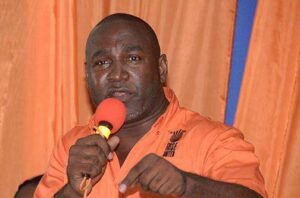
Hylton sees fees debate as emotive, but some NCB shareholders want a reduction
PATRICK Hylton managing director of large banking group, National Commercial Bank Jamaica (NCBJ) described as emotive the issue of rising bank fees but some shareholders wanted them reduced.
He reasoned that in more developed markets, fees and interest income account for a similar share of revenues.
“It is not dissimilar from more developed markets where there is an almost equal reliance on net interest income and fee income,” Hylton told the annual general meeting in his address at the Visitors Lodge held at the University of West Indies on Thursday.
The roughly 200 shareholders appeared at times more concerned about bank fees than the bank’s annual profit fall.
“There has been significant public discourse regarding our fees,” said Hylton. “We recognise and understand that during the context of challenging economic circumstances, rising costs whether it is food, utilities or bank charges is an emotive issue.
“All our fees are a reflection of the cost it takes to provide particular services. The cost we incur to process and ensure the safety of your deposits, include the cost of the teller taking the deposits, the insurance of those deposits, the cost of the premises in which it is secured, the cost of transporting the cash, the cost of the security during that process and more. In the majority of cases, we do not pass the full cost to our customers and we provide several alternatives that provide lower or no fees.”
Shareholder Orrett Staple, in his 30 minute address, indicated that the bank should reduce some fees in a drive to gain customer loyalty. It was met with applause from shareholders.
“I would like to see a further reduction in this number. Let us give back,” said Staple.
Roughly 23 cents from every dollar earned by local commercial banks are fees, which totalled an estimated $18.5 billion in 2013, according to a recently published Bank of Jamaica survey. These fees increased 12.6 per cent year-on-year amid profits dipping by one-third at these institutions.
Hylton also defended the 15 per cent drop in its October year end profit at $8.5 billion. He blamed the fall on Government’s debt swap which was a precondition of the International Monetary Fund (IMF) loan agreement. It resulted in reduced interest income for the group.
“There is a tendency to unfairly criticise and in some cases vilify individuals or organisations that do well. The truth is that I have no difficulty with constructive criticism. In fact my colleagues will tell you it is something we encourage, we welcome it because it’s free consultancy,” he told shareholders.
The bank returned to increased profits in its quarter ending December 2013 at $2.9 billion compared with $2.8 billion a year earlier. Revenues jumped 15 per cent year-on-year to $13.5 billion in the quarter. Additionally the bank holds some $466 billion in assets compared with $397 billion a year earlier up 17 per cent year-on-year.
“Our results in the first quarter ended December 2013 demonstrate our ability to grow during a dynamic and challenging economic environment. Our results reflect the strength of our diversified business model; compared with the prior quarter, our loans deposits, net interest income and cost to income ratio all improved. In addition, operating expenses were lower this quarter and we continued to grow our capital,” stated NCBJ in its financials.
The bank also indicated that it would continue to grow its loan portfolio which increased year-on-year to $148.4 billion from $116 billion.























